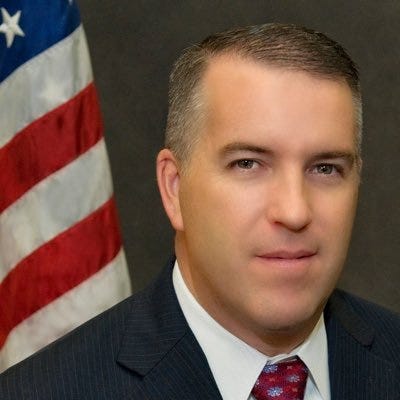Citizen Scientist Nominee, Florida state Representative Matthew Willhite, writes about his mother’s experience with Alzheimer’s disease and GAP-Net site, JEM Research Institute.
Before she was diagnosed with Alzheimer’s disease, my mom was a nurse for 30 years. Her compassion for others and her tireless strength inspired me to become a Navy corpsman, a firefighter, a state representative and her caregiver — or as we like to call it, her care friend.
Today, there is no cure for Alzheimer’s, a disease that affects 580,000 Floridians like my mom. Given her background as a nurse and mine as a paramedic, the most frustrating thing for us both about her diagnosis was that it seemed like there was nothing we could do. There was no broken arm to reset, no medication to prescribe, no CPR to administer.
But when we met with Dr. Mark Goldstein at JEM Research Institute, he assured us that there was something important we could do to make a difference: my mom could join a clinical trial.
Despite the rising prevalence of Alzheimer’s in Florida and in the United States, 90% of Alzheimer’s clinical trials are delayed by slow recruitment. Volunteering for Alzheimer’s clinical trials is a critical way to accelerate the discovery of a cure. My mom needed a research study partner to accompany her to all her study visits, so we joined together.
Since then, my mom and I have participated in three studies, including Biogen’s clinical trial of the drug aducanumab, which has now been submitted to the FDA. If aducanumab is approved, it will become the first treatment to slow the progression of Alzheimer’s.
By joining clinical trials, my mom and I were welcomed with open arms into a community of people who understood our experience. The staff at JEM got to know my mom and me as people, not just as trial participants. Through events and support groups, the study volunteers like my mom and study partners like myself can connect with other people at every stage of the path we are on.Get the Afternoon Update newsletter in your inbox.
In my career as a public servant, I have seen time and time again that service to others is the most rewarding thing in life. Alzheimer’s clinical trials are no different. Joining one is like buying a lottery ticket, but instead of hoping only you win, you hope that your contribution also will help your children, your grandchildren, and everyone that comes after you.
In a time with so much disagreement, I have found that the search for a cure for Alzheimer’s is important common ground in Tallahassee. This summer, I worked with Republican Rep. Scott Plakon, who tragically lost his wife, Susie, to Alzheimer’s, to create a new dementia director position in the Florida Department of Elder Affairs. I will always be a supporter of the search for a cure for this disease — as a son, as a legislator, a study partner and a care friend.
But more help is needed. Experts fear that COVID-19 might slow down medical research and push back the discovery of a cure. Clinical trial sites are always looking for volunteers who qualify for upcoming studies — even people who don’t have Alzheimer’s can qualify for critical clinical trials.
Joining an Alzheimer’s clinical trial is a public service to your community, to your state and to the world – just as much as it is helpful for your own health. One can feel powerless facing a disease like Alzheimer’s, but clinical trials are the way we can all fight back.
Matt Willhite, Wellington
Editor’s note: Willhite, a Democrat, represents the 86th District in the Florida House of Representatives. He served for eight years in the U.S. Navy and has spent the last 24 years with Palm Beach County Fire-Rescue.
Originally posted by The Palm Beach Post on September 16, 2020.
